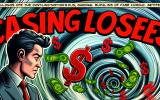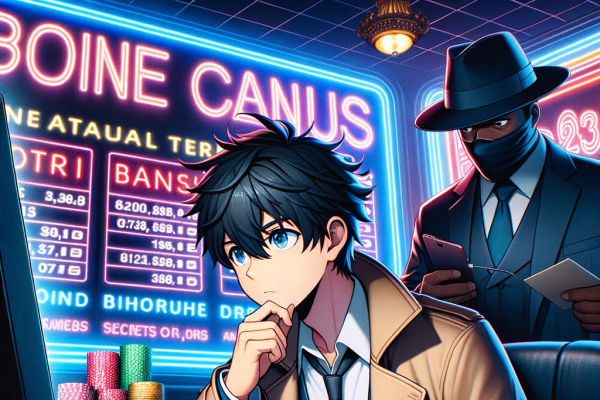Casinos are not just places for games of chance; they are also sophisticated marketing environments designed to maximize profits. Central to this profitability are promotions that lure players into spending more time and money. Understanding the psychology behind these promotions can help players make more informed decisions and recognize when they are being manipulated.
Understanding the Psychology Behind Casino Promotions
Casino promotions are meticulously crafted to tap into psychological triggers that resonate with potential players. One of the most significant aspects is the concept of “loss aversion,” where individuals are more motivated to avoid losses than to pursue equivalent gains. Promotions that offer bonuses or “free” credits play on this bias, as players may feel they are missing out on something valuable if they don’t participate. This sense of urgency and fear of missing out (FOMO) often compels players to engage more, ignoring the potential risks involved.
Another psychological tactic is the use of social proof. Promotions often highlight how many players are taking advantage of offers or showcase winners, thereby fostering a sense of community. The belief that “everyone else is doing it” can drive individuals to join in, further fueling their gambling activity. As players see others winning, they may feel an inflated sense of confidence in their own chances, encouraging them to wager more.
Moreover, casinos deploy the concept of reciprocity. When players receive bonuses or free spins, they may feel indebted to the casino and more inclined to keep playing to “pay back” the favor. This strategy creates a psychological bond between the player and the establishment, subtly pushing players into a cycle of continuous play.
Finally, the intermittent reinforcement model, akin to how slot machines operate, is harnessed in promotions. Players may receive small rewards frequently, creating a habit-forming response. This unpredictability can lead to a compulsion to keep playing, as the next promotional offer might feel just around the corner, prompting players to engage in more gambling than they initially intended.
The Allure of Freebies: A Costly Illusion
Promotions often feature enticing language around “free” bonuses or spins, creating an illusion of value. However, players frequently overlook the conditions attached to these offers, which can lead to unexpected costs. While the initial appeal of receiving something for nothing is strong, the reality is that these promotions often require players to wager significant amounts before they can withdraw any winnings.
To illustrate this point, consider the following table, which breaks down the common types of casino promotions and their hidden costs:
| Promotion Type | Initial Offer | Wagering Requirement | Typical Outcome |
|---|---|---|---|
| Welcome Bonus | $100 Free | 20x | Must wager $2,000 to cash out |
| Free Spins | 50 Spins | 30x | Must wager $1,500 to cash out |
| No Deposit Bonus | $10 Free | 10x | Must wager $100 to cash out |
| Reload Bonus | 50% Match | 15x | Must wager $750 to cash out |
The allure of “freebies” often masks their true cost, making them seem like a great deal. However, players can quickly find themselves in a situation where they are compelled to spend far more than the value of the promotion to obtain any tangible rewards.
Moreover, the excitement generated by these promotions can lead to impulsive behavior. Players may deposit more money than they originally intended, all in hopes of capitalizing on the “free” offers. This can create a cycle of overspending and regret, as players chase the benefits of promotions without weighing the consequences.
Hidden Terms: The Fine Print You Often Overlook
One of the most insidious aspects of casino promotions lies in the fine print. Terms and conditions are often lengthy and convoluted, making it easy for players to overlook critical details. These hidden terms dictate how and when bonuses can be used, limiting their effectiveness and often resulting in frustration for players attempting to redeem them.
Common hidden terms include expiration dates, specific game restrictions, and limitations on withdrawal amounts. For instance, a promotion might state that a bonus is valid for only a week, urging players to gamble quickly. This time pressure can lead players to make hasty decisions, often resulting in losses that overshadow any perceived benefits.
Additionally, many promotions are tied to specific games that may have higher house edges. Players may be encouraged to play these games under the guise of accessing their bonuses, thereby increasing the odds against them. This tactic cleverly directs players away from more favorable games, ultimately serving the casino’s interests rather than those of the player.
Finally, the complexity of the fine print can create a sense of confusion and frustration among players. When bonuses are not as easily redeemable as promised, it can lead to disappointment and a sense of betrayal. Players may feel compelled to play longer in an attempt to make the most of their investment, inadvertently falling deeper into the casino’s trap.
Loss Chasing: How Promotions Fuel Destructive Habits
Promotions can unintentionally foster a dangerous mentality known as “loss chasing.” When players experience losses, particularly after engaging with promotional bonuses, they may become determined to win back what they’ve lost. This mindset can lead to deeper financial troubles, as individuals may gamble more than they can afford in hopes of recovering their losses.
The emotional toll of chasing losses can be profound. Players often find themselves rationalizing their decisions, believing that one more round or one more bet will turn their fortunes around. This destructive cycle can be exacerbated by promotions that encourage additional play through offers of “double your losses” or “get a bonus for every loss.”
Moreover, casinos are acutely aware of this behavior and may design promotions to exploit it. By continually offering bonuses or credits that imply recovery is just one more bet away, casinos can keep players engaged, even when they should take a break. This manipulation of emotions can trap players in a vicious cycle of gambling that is hard to escape.
Recognizing the signs of loss chasing is crucial. Players need to be aware of their emotional state and how promotions may influence their decisions. Developing a strategy for managing losses can help mitigate the impact of these promotions, allowing players to engage responsibly and enjoyably.
The Role of Gamification in Casino Marketing Tactics
Gamification has become a critical component of casino marketing, transforming promotions into engaging experiences. By incorporating game-like elements, casinos can entice players to participate in promotions, making them feel more like games than marketing tactics. This strategy enhances player engagement and encourages them to interact with the casino more frequently.
Leaderboards, milestones, and personalized rewards are just a few examples of gamification elements. Players are motivated to compete against themselves or others for rewards, leading to increased playtime and spending. The thrill of competing for prizes can overshadow the rational assessment of risk and reward, leading players to gamble more than they originally intended.
Additionally, gamification exploits the psychology of achievement. Players who complete challenges or reach certain milestones often feel a sense of accomplishment. This feeling can reinforce the desire to continue playing, as players are drawn to the idea of obtaining more achievements and rewards. By framing promotions as a game, casinos can keep players engaged in a way that feels rewarding, even when the financial outcomes may be negative.
However, the ongoing engagement created by gamification can lead to addiction. As players chase achievements and rewards, they may neglect their responsibilities and financial stability. Understanding the role of gamification can help players recognize when they are being drawn into the casino’s marketing strategies, allowing them to make informed choices about their gambling habits.
Strategies to Recognize and Resist Promotional Traps
Recognizing and resisting promotional traps in casinos requires a combination of awareness and strategy. First and foremost, education is key. Understanding how promotions work and the psychological tactics behind them can empower players to approach them cautiously. Familiarizing oneself with the terms and conditions of any promotional offer is essential to avoid costly surprises.
Setting clear limits before engaging with promotions can also help players maintain control. Establishing a budget for how much to spend on gambling, including any promotional engagements, can help individuals resist the urge to chase losses or overspend. Sticking to this budget can provide a safeguard against the alluring nature of casino promotions.
Additionally, taking breaks during play can help players reset their mindset. The excitement of promotions can create an adrenaline rush that clouds judgment. Stepping away from the gaming floor or taking time to reflect on the decisions being made can provide clarity and help prevent impulsive behavior.
Lastly, seeking support can be beneficial. Whether through friends, family, or professional help, having a support system can make it easier to recognize when promotional tactics are leading to problematic behavior. Engaging in discussions about gambling habits can provide valuable insights and encourage healthier choices in the face of enticing promotions.
Q&A Section
Q: Are casino promotions always beneficial for players?
A: Not necessarily. While they can provide additional value, the terms and conditions often make them more costly than beneficial.
Q: How can I avoid falling into the trap of loss chasing?
A: Set clear spending limits and take regular breaks to maintain perspective on your gambling activities.
Q: What should I look for in the fine print of promotions?
A: Pay attention to wagering requirements, expiration dates, and game restrictions to avoid unexpected costs.
Q: Is gamification harmful to players?
A: While it can enhance engagement, it may also lead to increased gambling risks and potential addiction if not managed carefully.
Q: How can I educate myself about casino promotions?
A: Research common promotional tactics, read articles from reputable sources, and familiarize yourself with the specific terms of any offers you encounter.





